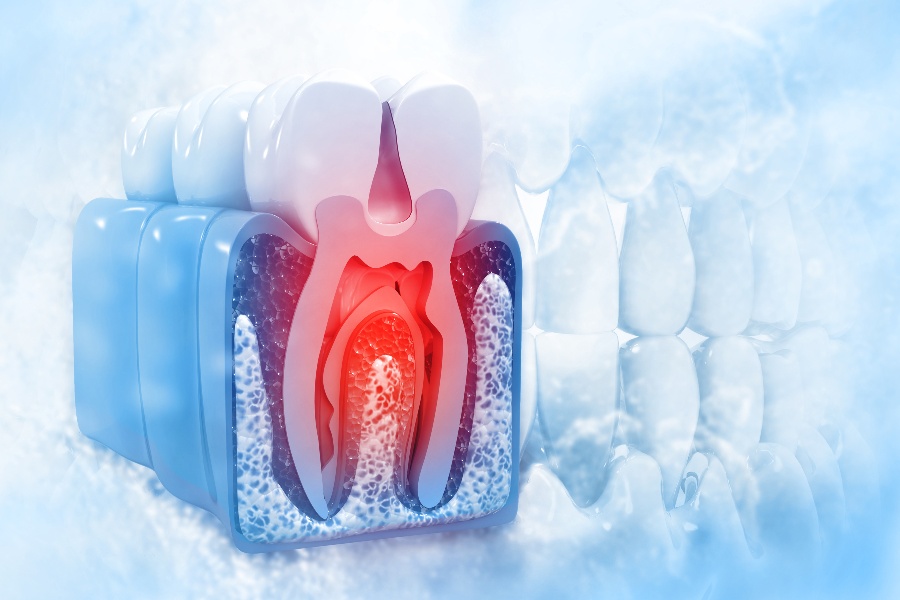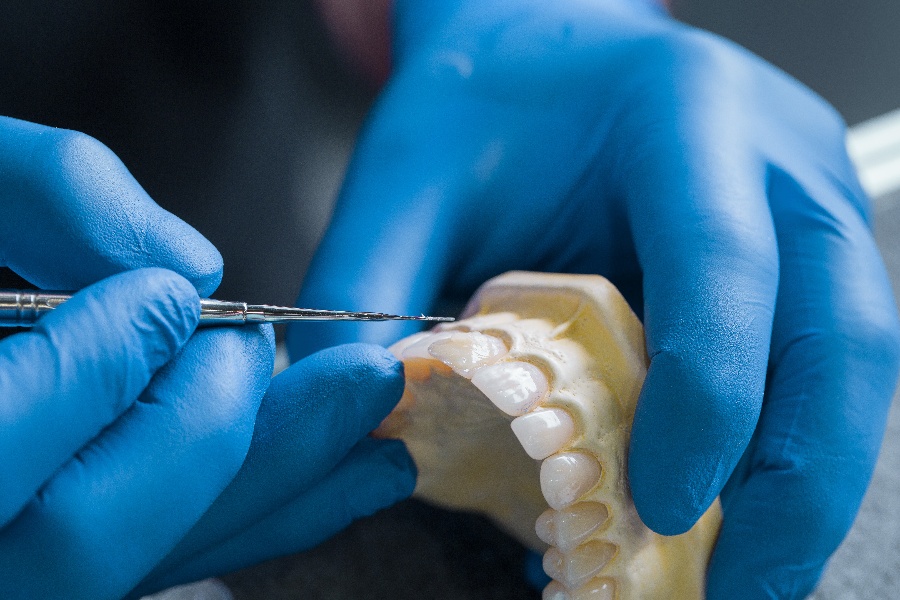Dental implants are not painful. You might experience a pinching sensation as the dentist injects numbing Novocain on your already numbed gum tissue before the procedure begins. During the procedure, you will feel no pain at all. For more extensive implant surgery like the all-on-4 full arch replacement, depending on the patient, the dentist will administer an appropriate level of sedation or anesthesia.
Afterward, the soreness and swelling accompanying minor implant surgery can be controlled easily with Tylenol. In the case of extensive implants, the dentist may prescribe stronger post-operative pain medication and rest for a few days while the swelling and soreness recede.
The good news is that dental implants, according to the American Dental Association have a 98 percent success rate "if the placement is proper and the proper oral regimens are followed." Regimens include normal brushing and periodic maintenance visits for cleaning and removal of plaque buildup.
Implants are an escape from pain and discomfort
Periodontal disease
Some patients decide on implant surgery because they are seeking escape from pain. Many patients—especially those who are genetically predisposed to gum disease--suffer tooth loss because of periodontal problems. Despite periodical painful plaque-scraping sessions at the dentist, their remaining teeth will continue to become loose, painful, and one by one requires extraction as gums swell and teeth are lost.
Over time, the loss of one or more teeth begins a cascading decline in dental health. When molars are lost, the front incisors, whose purpose is to bit and tear the food, have to do double duty. Food is ingested without proper mastication, and digestive problems often occur. Without lateral support, adjacent teeth are also undermined. Stopgap measures like denture bridges and partial plates are just temporary, and frequently unsatisfactory, fixes.
The choice between dentures or implants
Dentures can be uncomfortable—even painful
Even the best-fitting dentures can be uncomfortable and inconvenient. Dentures are removable teeth replacements fitting over the gums or have metal clamps. The metal-clamped dentures supported by the patient's remaining teeth last longer, but many patients complain that the dentures tend to rock and are uncomfortable.
Dentures can wear out in as little as five years. They are also high-maintenance appliances. They must be taken out and kept clean to avoid gum disease and odor. They tend to shift and move about while eating, and some people find them difficult to control. Also, the sticky denture adhesive products are messy, tend to catch food particles and are a risk to further gum disease and decay for the remaining natural teeth.
Ill-fitting dentures come with a more serious set of health problems and associated pain and discomfort.
Denture wearers typically experience painful, inflamed gums and blisters as the dentures constantly rub against the inside of the cheek. If the dentures are exerting undue pressure on the jaw, headaches and ear pain can result. Long-term denture wearers are also subject to jawbone atrophy.
Implants integrate with the jawbone
A tooth (or group of teeth) implant is the surgical placement of a metal post in the patient's lower and/or upper jaw. The procedure is analogous to fixing a new metal root. The metal root has a threaded end to mechanically seat a prosthesis base. A new tooth (or set of teeth) can be either cemented, snapped or affixed to the implant by a tiny metal nut.
The metal root—a titanium post--is surrounded by the existing jaw bone through a process called osseointegration. The bone around the implant heals and the implant becomes as solidly based as the root of a tooth. Jawbone atrophy is permanently arrested with the implant.
Unlike dentures, implants do not rock back and forth. Patients adjust quickly to the new speech habits required by the new prosthesis. Implants are low maintenance and require only basic cleaning attention. There is no risk of gum infection if the implants are maintained properly with periodic cleaning visits. If the patient breaks an implant crown - a rather rare occurrence - repair is quick and usually done locally.
With the pain gone, implants can improve your life
Here's how:
Your looks will improve. More permanent and better fitting than dentures, your new implants look natural and won't rock back and forth like dentures. Implants don't come with the speech problems associated with removable dentures.
Your digestive health will improve. You will also begin to be able to chew your food more completely and eat more healthily.
You will no longer grind your teeth. Your new implants will be perfectly aligned with your existing teeth (or each other in the case of complete tooth replacement). You will no longer awaken in the middle of the night with a sore jaw caused by bruxism (teeth grinding and clenching caused by, among other things, misalignment of teeth).
Most importantly, the pain and inconvenience of your former dental problems will go away.
The only downsides of implants
Implant dentures do not provide the sensitivity and total strength of natural permanent teeth. The surface prosthetic teeth can break under the same stresses that would crack or chip a natural tooth.
However, the overall dental implant failure rates (i.e., the implant coming away from the jawbone or not holding the denture properly) according to PubMed.com are low and there are no "absolute contraindications to implant placement."
Are dental implants right for you?
If you have lost one or more teeth, have been putting off taking care of the problem because of fear of pain—or you just don't like going to the dentist—contact us. One of our dedicated dental professionals will call you and let you know how we can help.
You may be at the point where you have to choose between removable dentures. Our advice is to go for the implants. Talk to those who have had the procedure or go online to see testimonials. We have state-of-the-art diagnostic technology and specialize in bone grafting for patients experiencing problems with jawbone density.
If your dental health is now ruining your life, consider dental implants. Having dental implants is not painful, and the resulting temporary swelling and soreness cannot hurt as much as your remaining real teeth do now.







